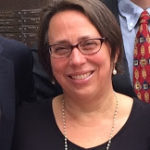
25 “For [j]what I fear comes upon me,
And what I dread befalls me.
26 “I am not at ease, nor am I quiet,
And I am not at rest, but turmoil comes.”
(Job 3:25-26)
(TRIGGER WARNING)
TRAUMATIC LOSS: “My God, My God, why have you forsaken me?”
Traumatic grief /bereavement is defined as when there is a death of a loved one that is sudden, unexpected and traumatic. For instance, when a death is a result of violent aggression or a violent event (such as murder or a terrible accident). Or, more specifically, when a child, yes, a dear friend of mine, found her mother’s lifeless body, in the kitchen after coming home from school one day. I have heard these stories more than once, my friends. Traumatic death leaves us feeling like we are without God. “These mourners face the twin tasks of mourning the loss of their loved one and coping with the trauma that accompanied the death.” (Perlman, p.3) One common theme I hear from those who have experienced such a loss, is that their lives are changed forever. One moves forward because time unkindly demands this, but one does not necessarily move on.
The fields of traumatology and thanatology (the study of death and dying, and bereavement), are brought together is these incidents of traumatic experience and loss. Our prophets in the Hebrew Bible/Old Testament remind us that emotional pain and terrible grief is both a deeply felt subjective experience in present time, and also part of historical time, itself. Paul Tillich posits that such despair is, in fact, always part of the human condition. “The foundations of the earth do shake.” (Isaiah 24:18)
The movement from the despair of Holy Saturday to the rebirth of Easter may hold hope for those experiencing traumatic grief. Holy Saturday, the space between Good Friday’s crucifixion and Easter Sunday’s resurrection, holds meaning for the trauma victim. Jesus descends into the darkness of death, holding close to his heart the pain of humanity. The deep anguish and emotional pain of trauma and loss is both experienced and felt in the witness and accompaniment of the movement from Holy Saturday’s despair to Easter’s rebirth. Jesus follows us into our deepest valley. There is no pain or traumatic happening that Jesus does not know or understand. God is with us in the darkness.
Rita Brock and Rebecca Parker write, “Salvation begins with the courage of witnesses whose gaze is steady.” These witnesses are crucial to healing, and more so, to survival. Shelly Rambo writes, “The good news lies in the ability of Christian theology to witness between death and life, in its ability to form a discourse between the two. The incarnate is held within this paradox: Jesus’ wounds remain in the morning light of Easter; Jesus rises in the dawn of life, but he carries his wounds with him.”
One young woman I work with said to me recently, “Did you know that the heart changes shape when there is grief. That it is, in fact, possible, to die of a broken heart.” This young woman first lost a 21-year-old brother, and then, unthinkably, a few years later, her 32-year-old sister. The heart changes shape, as do our stories of the future. Suddenly, the landscape is devastatingly altered. There are times when our narratives are too difficult to face, too heavy to carry by ourselves. We need others to listen. We need others to share our pain. We need others to hold these stories with us. For the enormity makes them too hard to bear alone. The women at the foot of the Cross stood together in strength and love. Love, accompaniment, and witness become lifesaving in these times of devastation. When our darkest despair is met with inexplicable love, there is hope. The way forward becomes possible. Amen.
Brock, Rita and Parker, Rebecca. “Proverbs of Ashes: The Search for Redemption and That Which Saves Us,” Beacon Press: Boston, 2001.
Pearlman, L. “Treating Traumatic Bereavement: A Practitioner’s Guide,” The Guilford Press: New York, 2014.
Rambo, S. “A Theology of Remaining,” Westminster John Knox Press: Louisville, 2010.

Jennifer Stuart
Jennifer Stuart is an ordained minister in the United Church of Christ. She serves as a community minister at First Church in Cambridge, MA, UCC. Jennifer, a clinical social worker specializing in psychological trauma, is a psychotherapist at the Danielsen Institute at Boston University.